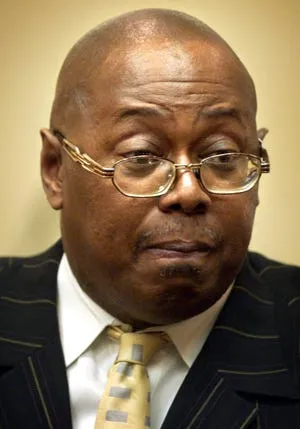Memphis’ ‘Cussing Pastor’ Thaddeus Matthews Passes Away at 67: A Legacy of Controversy and Influence
Thaddeus Matthews, widely known as the “Cussing Pastor,” passed away at the age of 67 on February 24, 2025. His death was confirmed by his wife, Melanie Matthews, via a heartfelt social media post that resonated deeply with his followers and the Memphis community. Matthews was a prominent pastor and radio host in Memphis, Tennessee, whose sermons and outspoken nature often sparked both admiration and outrage.
Matthews gained notoriety for his unapologetic preaching style, which frequently included profanity and challenged the traditional norms of ministry. His sermons were not just about spiritual guidance; they were a reflection of his candid opinions on pressing social issues, including race, religion, and social justice. This approach made him a polarizing figure, attracting a dedicated following while simultaneously facing significant criticism from various quarters.
A Journey Through Controversy
Throughout his career, Matthews was no stranger to controversy. He hosted a popular radio show where he discussed a wide range of topics, often addressing local community concerns. His willingness to tackle difficult subjects head-on made him a significant voice in Memphis, but it also led to backlash. In 2016, Matthews faced harassment charges, which only added to the complexity of his public persona.
In 2022, he was arrested for allegedly violating a protection order and Tennessee’s “revenge porn” law. These legal troubles complicated his already contentious image but did not diminish his influence in local politics. Matthews was known for endorsing political candidates, including his support for then-Shelby County District Attorney Amy Weirich during her re-election campaign in 2022. Interestingly, he refrained from using profanity during her appearance on his show, a notable departure from his usual style.
Despite the controversies, Matthews was a beloved figure to many in his community. His outreach programs and events demonstrated his commitment to addressing the struggles faced by marginalized communities. His influence extended beyond the pulpit, as he engaged with the public in meaningful ways, further solidifying his legacy.
Health Struggles and Final Days
In the weeks leading up to his death, Matthews took to social media to share his health struggles, revealing that he had been hospitalized multiple times. The cause of his death has not been publicly disclosed, leaving many in the community seeking answers and grappling with the loss of a figure who had become synonymous with Memphis.
Reactions to his passing have been mixed, reflecting the complicated legacy he leaves behind. Many have expressed sorrow over the loss of a man who was unafraid to speak his mind and challenge societal norms. However, others have pointed to his controversial remarks and actions, reminding the public of the divisive nature of his influence.
A Lasting Impact
Matthews’ legacy is undoubtedly complex. He was a pastor who broke barriers and defied expectations, using his platform to address issues that many were hesitant to confront. His candid approach resonated with many, particularly those who felt marginalized or unheard. Yet, his use of profanity and controversial remarks often alienated others, leading to a polarizing reputation.
In reflecting on his life, it is essential to acknowledge both the positive and negative aspects of his influence. While some viewed him as a voice of reason and a champion for social justice, others criticized him for his unconventional methods and remarks. This duality is perhaps best encapsulated in a quote from Matthews himself: “I speak the truth, even if it hurts. If you can’t handle it, that’s your problem, not mine.”
Conclusion
Thaddeus Matthews’ passing marks the end of an era for many in Memphis. His life and work serve as a testament to the power of voice—both uplifting and controversial. As the community reflects on his legacy, it is clear that Matthews will be remembered not only for his sermons and radio show but also for the conversations he sparked about race, religion, and social justice.
In a world that often shies away from uncomfortable truths, Matthews was a figure who embraced them, for better or for worse. His legacy will continue to influence discussions around faith, community, and the complexities of modern ministry. As Memphis mourns the loss of the “Cussing Pastor,” it must also confront the multifaceted nature of his impact, one that will undoubtedly be debated for years to come.






Leave a Comment